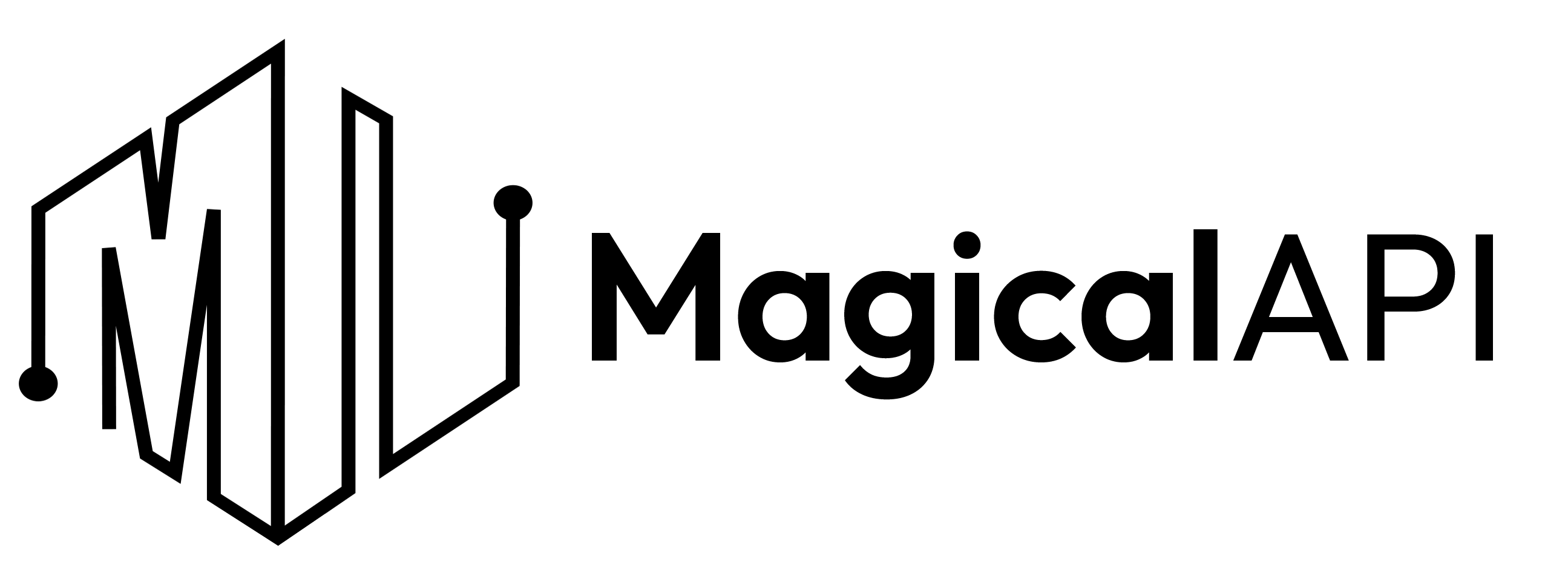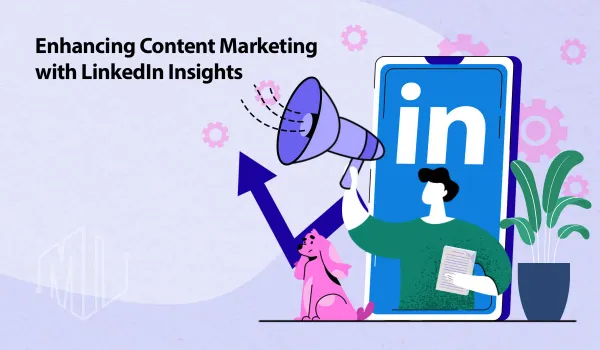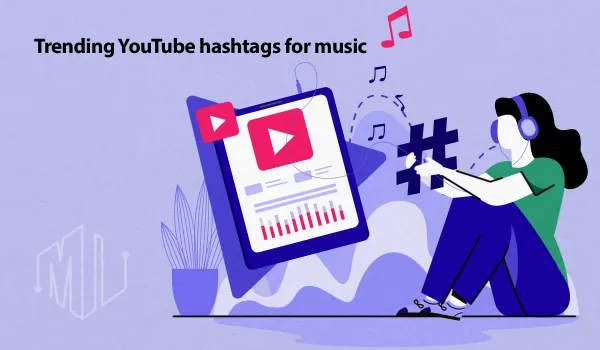Is It Legal to Scrape LinkedIn?
Uncover the legal nuances of LinkedIn data scraping in our blog. Understand necessary permissions and ethical considerations for compliant data gathering from LinkedIn, ensuring you stay informed and on the right side of the law.
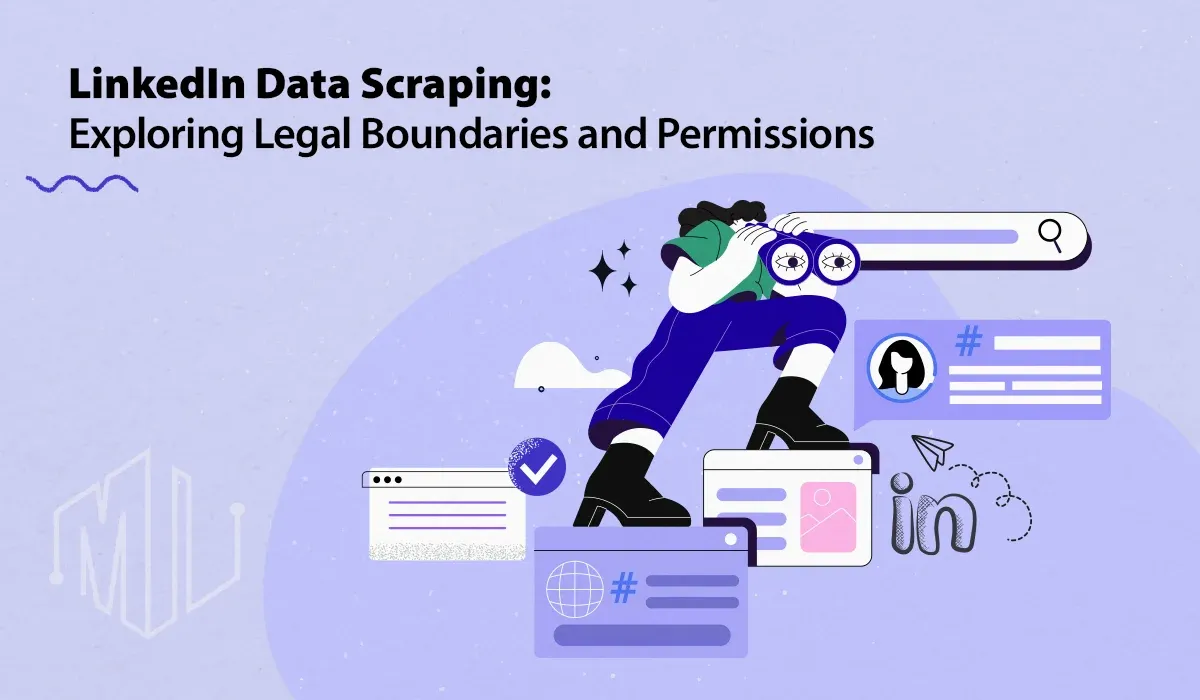
In the realm of digital data and social networking, LinkedIn has emerged as a powerhouse of professional information. This has naturally given rise to a surge in the use of LinkedIn scrapers - tools designed to extract valuable data from LinkedIn profiles. However, accessing this data through scraping tools raises important questions about privacy, consent, and compliance with legal standards.
The platform itself has established clear policies and terms of service regarding the use of automated tools like scrapers, often resulting in legal disputes and debates about data ownership and privacy rights.
✨ Unleash the Power of AI with MagicalAPI!
Whether you’re optimizing YouTube content, extracting LinkedIn data, or evaluating resumes, MagicalAPI is your one-stop solution! Discover the diverse range of AI services tailored to meet your every need. Dive in and elevate your digital experience today!
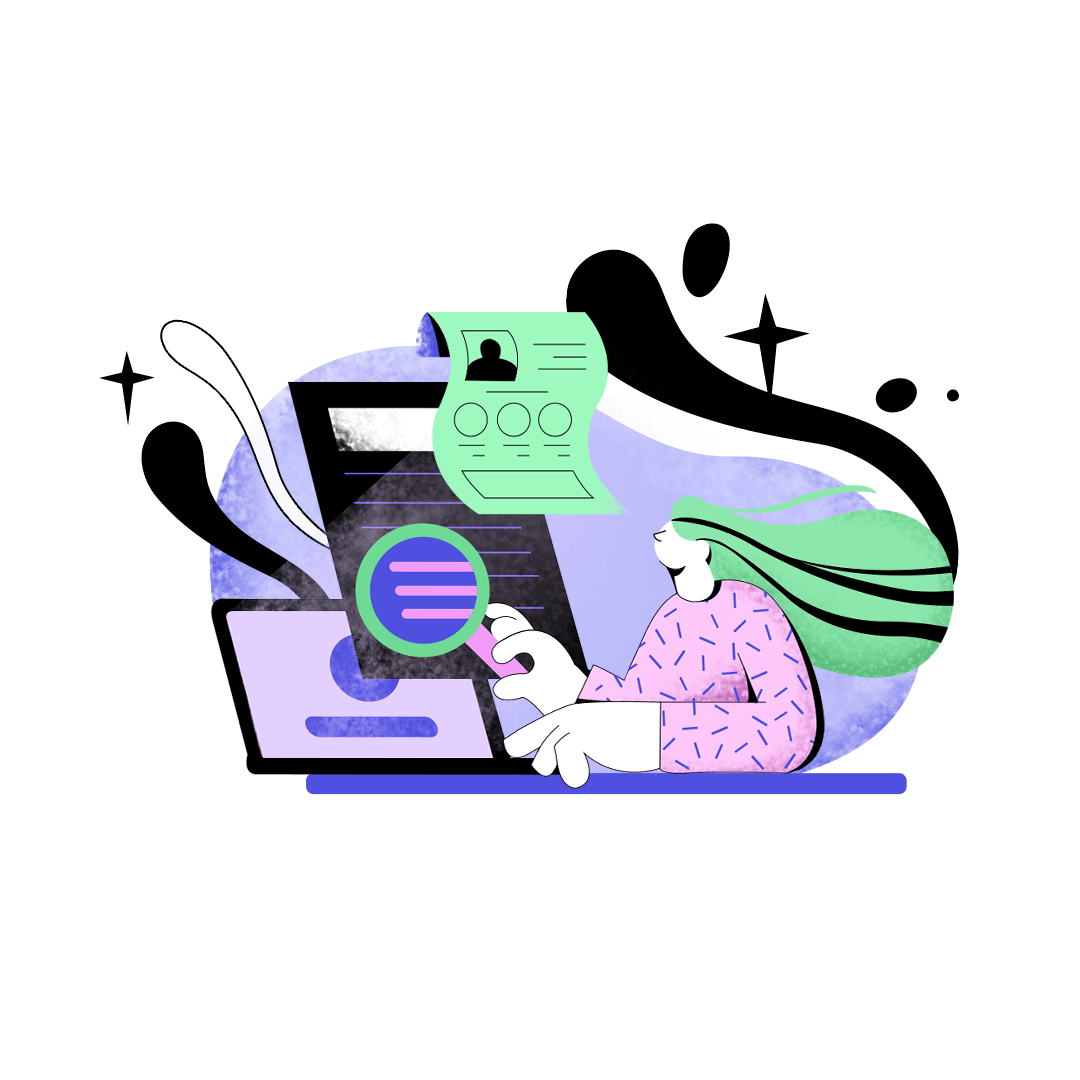
What is Data Scraping?
Before delving into the legality of scraping LinkedIn, it is essential to understand what web scraping entails and the legal implications associated with it. Web scraping refers to the process of extracting data from a website or online platform. When it comes to LinkedIn scraping, this involves gathering specific information from LinkedIn profiles, which could include details like names, job titles, educational backgrounds, skills, and professional connections.
LinkedIn, like many other social media platforms, has policies and terms of service that restrict the use of automated tools to scrape data from their site. These restrictions are in place to protect user privacy and proprietary data.
Use Cases of Scraping LinkedIn
LinkedIn scraping has various applications within legal boundaries, offering benefits to businesses and professionals. Key uses include:
- Recruitment: Speeds up candidate identification by analyzing profiles for job matching. By extracting information such as work history, skills, and educational background, they can quickly identify and reach out to individuals who match specific job criteria, streamlining the recruitment process.
- Lead Generation: Helps sales and marketing teams find potential clients by extracting profile data.
- Market Research: Provides insights into industry trends and employment patterns for strategic planning.
related: Benefits of Using a LinkedIn Profile Scraper for Targeted Marketing Campaigns - Networking: Aids in finding potential business partners and expanding professional networks. LinkedIn profile scraping can aid in identifying potential business partners, investors, or industry influencers.
- Academic Research: Supports studies on employment trends and workforce planning.
- Personal Branding: Allows individuals to refine their online presence and career strategies.
It's essential to scrape responsibly, adhering to legal standards and LinkedIn’s terms.
Common Arguments for Web Scraping
To understand the arguments surrounding the legality of scraping LinkedIn, it is essential to examine the perspectives of both web scrapers and platforms like LinkedIn. Web scrapers often argue that scraping publicly available data is akin to accessing information freely available on the internet. They contend that web scraping enables data-driven decision-making, facilitates research, and drives innovation.
On the other hand, platforms like LinkedIn raise concerns about data privacy, intellectual property rights, and the potential misuse of scraped data. They argue that scraping can lead to unauthorized access, and copyright infringement, and undermine the integrity of their platforms. Balancing these arguments is crucial in determining the legality of scraping LinkedIn and other platforms.
Limitations and Challenges of Scraping LinkedIn
While scraping LinkedIn can provide valuable data and insights, there are certain limitations and challenges associated with this practice. LinkedIn has implemented measures to prevent scraping and protect its users' data, which can pose significant hurdles for web scrapers.
One major limitation is the restriction on the number of profiles that can be scraped per user. LinkedIn imposes a limit of 50 profiles per day, and exceeding this limit can result in account suspension or other consequences. Additionally, LinkedIn employs various techniques, such as captchas, to detect and prevent automated scraping activities.
Another challenge is the dynamic nature of LinkedIn's website structure. LinkedIn frequently updates its website layout and implements anti-scraping measures, making it challenging to maintain scraping scripts and ensure consistent data extraction. Web scrapers need to constantly adapt their scraping methods to stay ahead of these changes and avoid detection.
The HiQ v. LinkedIn Case: A Landmark Legal Battle
To gain insights into the legal aspects of scraping LinkedIn, it is essential to examine a significant legal case that revolved around web scraping - the HiQ v. LinkedIn case. This case played a pivotal role in shaping the arguments and legal understanding surrounding web scraping and its implications.
The HiQ v. LinkedIn case began in 2017 when LinkedIn sought legal action against HiQ, a company that scraped LinkedIn data to provide analytics and insights to employers. LinkedIn argued that HiQ's scraping activities violated the Computer Fraud and Abuse Act (CFAA) and constituted unauthorized access to its platform. However, the courts ruled in favor of HiQ, stating that scraping publicly available data from LinkedIn did not violate the CFAA.
The case took several twists and turns, with LinkedIn appealing the decision in higher courts. Ultimately, the Supreme Court granted LinkedIn's petition to overturn the Ninth Circuit's ruling, leading to a private settlement between the two parties in December 2022. While this case provided some clarity on the legality of scraping LinkedIn, it is crucial to note that each scraping activity must be evaluated on a case-by-case basis.
So, Is It Legal to Scrape LinkedIn?
As we mentioned above, The legality of using a LinkedIn scraper is a question that doesn't have a straightforward answer, as it hinges on multiple factors including the method of data collection, the type of data being scraped, and the jurisdiction’s legal standards.
- LinkedIn’s Stance and Legal Precedents: LinkedIn's Terms of Service clearly prohibit the use of automated tools like scrapers to extract data from the platform. There have been notable legal cases where LinkedIn has pursued legal action against entities that have used scrapers to harvest data from its site. These cases often revolve around the Computer Fraud and Abuse Act (CFAA) in the United States, which prohibits accessing computer systems without authorization.
- Public vs. Private Data: The legality of scraping can also depend on whether the data is public or private.
- Data Protection Laws: Various jurisdictions have their own data protection laws, like the GDPR in the European Union, which impose stringent rules on data collection and processing. These laws require explicit consent for collecting personal data, which complicates the legality of using LinkedIn scrapers without user consent.
- LinkedIn's API as an Alternative: For those seeking to access LinkedIn data legally, LinkedIn’s API provides a more compliant route. Accessing data through LinkedIn's API involves adhering to their usage policies and often requires LinkedIn's express permission, thus aligning with legal and ethical standards.
In summary, while technology like a LinkedIn scraper provides the capability to extract vast amounts of data, its legality is not black and white. The scraping LinkedIn legality hinges on how the scraping is done. Scraping public LinkedIn profiles is generally considered legal. However, practices like using fake accounts to log in and scrape LinkedIn profiles can be illegal.
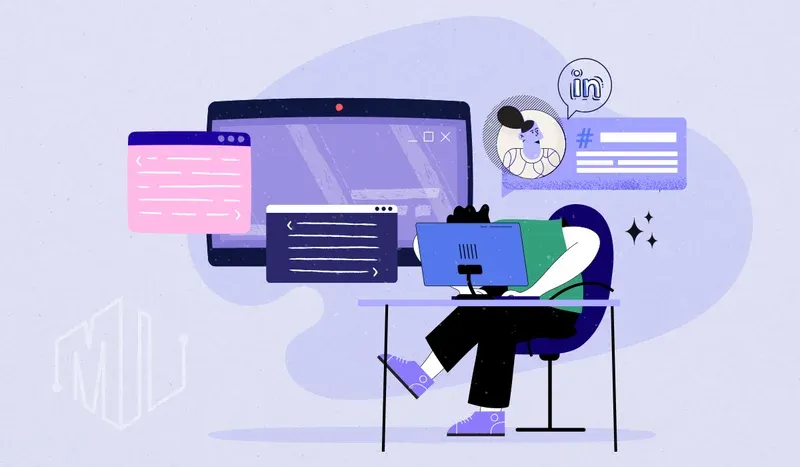
The Future of Data Scraping and Privacy Laws
The future of data scraping, particularly with tools like LinkedIn scrapers, is poised at a crucial juncture. This future is shaped by a growing awareness of privacy rights, technological advancements, and the changing legal frameworks that govern data usage. Understanding these dynamics is essential for anyone involved in data scraping, as it will influence how tools like LinkedIn scrapers are utilized and regulated.
- Increased Focus on User Privacy: The global conversation around data privacy is intensifying, with users becoming more aware of their digital rights. This shift is leading to stricter privacy laws and regulations, such as the General Data Protection Regulation (GDPR) in the European Union and the California Consumer Privacy Act (CCPA) in the United States.
These laws mandate greater transparency and user consent in data collection and usage, directly impacting data scraping practices. - Advancements in Data Protection Technologies: As privacy concerns grow, so do the technologies designed to protect user data. Platforms like LinkedIn are likely to implement more robust anti-scraping measures, making it more challenging to extract data without explicit permission. This technological tug-of-war will continue to shape the feasibility and methods of data scraping.
- Legal and Ethical Compliance as a Priority: The future of data scraping will see a heightened emphasis on legal and ethical compliance. Businesses and individuals using LinkedIn scrapers will need to stay abreast of legal developments and ensure that their data scraping practices are transparent, lawful, and ethical. This may involve seeking explicit consent from data subjects or limiting scraping to publicly available data.
- Innovations in Consent-Based Data Access: We may see innovations in how consent is obtained and managed for data scraping purposes. This could include more sophisticated consent management platforms or new methodologies for ensuring that data scraping adheres to user preferences and legal requirements.
- Potential for New Legislation and Legal Precedents: We can expect new laws and legal precedents that specifically address the nuances of data scraping, potentially reshaping its legal boundaries. Businesses using LinkedIn scrapers will need to stay informed and adaptable to these changes.
- Ethical Data Scraping Practices Will Be Key: The focus will increasingly shift toward ethical data scraping practices. Companies will need to balance their data collection goals with respect for user privacy, opting for approaches that are transparent and responsible.
In conclusion, the future of data scraping, particularly about LinkedIn and similar platforms, will be heavily influenced by the evolving discourse on privacy rights, legal developments, and technological advancements. The use of LinkedIn scrapers and other data extraction tools will be needed to navigate these changes, prioritizing compliance, ethical considerations, and respect for user privacy. As these dynamics unfold, the landscape of data scraping will continue to evolve, presenting new challenges and opportunities for businesses and individuals alike.
Conclusion
The exploration into the world of LinkedIn data scraping, marked by its legal complexities and ethical considerations, brings us to a crucial understanding: while the allure of accessing vast professional data through a LinkedIn scraper is strong, it must be balanced with adherence to legal boundaries and respect for privacy.
Navigating the legal landscape of LinkedIn scraping requires a careful, informed approach. As we've seen, the implications of disregarding LinkedIn's Terms of Service or privacy laws can be significant, ranging from legal challenges to reputational damage. The key is to pursue data collection methods that are ethical, compliant, and respectful of user privacy.
In this evolving digital era, where data is invaluable, there are alternatives to scraping LinkedIn that can provide businesses with the insights they need without the associated legal risks. Our services at MagicalAPI, including Profile Data and Company Data, offer a viable solution. These services provide comprehensive and legally compliant access to professional data, helping businesses achieve their objectives in market research, talent acquisition, lead generation, and competitive analysis.
By choosing our Profile Data and Company Data services, you can bypass the complexities and risks of using a LinkedIn scraper. Our services ensure you get the valuable data you need while staying within the legal and ethical boundaries. With MagicalAPI, you can harness the power of professional data effectively and responsibly, driving your business strategies forward with confidence and peace of mind.
FAQ
Is it legal to scrape data from LinkedIn?
Scraping data from LinkedIn without authorization is generally considered a violation of LinkedIn's User Agreement, which explicitly forbids the use of automated tools to extract data from their platform. While scraping publicly available data is not inherently illegal under U.S. law, it can still lead to legal consequences if it violates LinkedIn’s terms of service.
Can LinkedIn ban you for scraping data?
Yes, LinkedIn can and does ban users who are caught scraping data without permission. Their systems are designed to detect unusual scraping activities, such as high-volume profile viewing in a short period, and can lead to account suspension or permanent bans.

Join to our community
By joining our Discord server, get assistance, and troubleshoot any challenges you may encounter while using our services.
Join us on Discord
